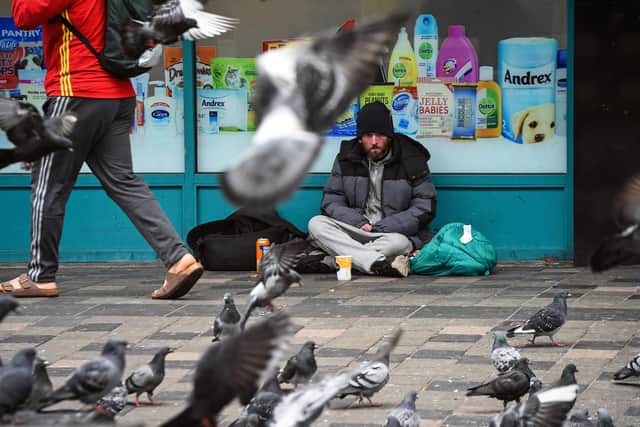Why public health approach to Covid should lead to a step change in how we tackle homelessness – Melissa Espinoza
Transitions can be uneasy, uncomfortable, and stressful. They are a reminder of change and, for some, anxiety that is rooted in a lack of control and the unknown. However, for people experiencing homelessness, transition is often a constant state.
For many people, the pandemic was the first time they experienced the lack of choice over, for example, when or how long you can leave your home, where you can go, or even food because of flour and pasta shortages early in the pandemic.
Advertisement
Hide AdAdvertisement
Hide AdYet, many homeless shelters have decided such choices for their residents long before Covid-19 For people staying in temporary accommodation or night shelters, autonomy is often limited by the rules of organisations and a constant state of transition.
They are often told when they can rest or be out, if friends or family may visit, and what will be offered for dinner. People's choices and agency are reduced to fit what works best for everyone else – not necessarily for their well-being.
Cities across the UK saw a dramatic decrease, even if short-lived, in the number of people sleeping outdoors due to efforts to reduce the spread of Covid-19.
Government guidelines for everyone to shield, quarantine, and practice social distancing could not be done in shared spaces. During the pandemic, many shelters in Scotland and the UK moved away from shared spaces and night shelters, using hotel rooms instead.


